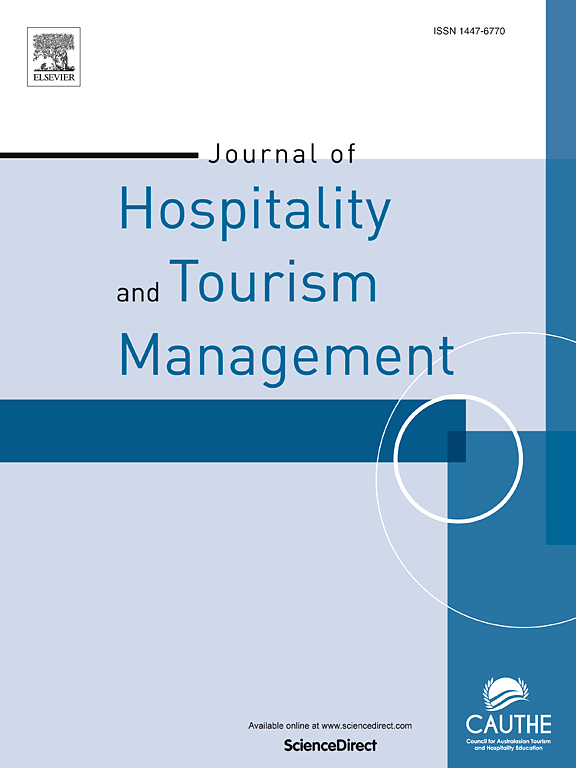突发公共卫生事件阴霾下游客的情绪错误归因行为:来自准实验的洞察
IF 7.6
1区 管理学
Q1 HOSPITALITY, LEISURE, SPORT & TOURISM
引用次数: 0
摘要
游客的情绪可以被外部刺激触发,进而影响游客的态度和行为。然而,突发公共卫生事件是否会导致游客评价发生变化,游客评价如何发生变化,游客的情绪是否会发生变化,目前尚不清楚。因此,本研究运用情绪错误归因理论,通过新冠肺炎疫情构成的准实验,揭示突发公共卫生事件对游客评论生成的影响。通过差异中的差异分析发现,疫情期间游客评价呈现正向上升趋势,这可能是突发公共卫生事件引发的怀旧情绪导致的情绪性错误归因行为。我们进一步分析了游客评论变化的来源,并确定了评论是否基于购买订单和游客评论状态,这是导致评级和评论变化的因素。这些发现有助于旅游管理领域的游客行为文献,并为旅游从业者和平台运营商提供实践启示。本文章由计算机程序翻译,如有差异,请以英文原文为准。
Tourists' emotional misattribution behavior under public health emergencies’ haze: Insights from a quasi-experiment
Tourists’ emotions can be triggered by external stimuli, subsequently impacting their attitudes and behavior. However, whether and how tourist review changes as a result of public health emergencies and their emotional arousal remains unknown. Hence, this study utilizes the emotional misattribution theory and reveals the influence of public health emergencies on the generation of tourist reviews through a quasi-experiment constituted by the COVID-19 outbreak. The difference-in-differences analysis reveals that tourist reviews became more positive during the pandemic, which can be attributed to the nostalgia aroused by the public health emergencies, leading to emotional misattribution behavior. We further analyzed the sources of tourist review changes and identified whether a review was based on purchase orders and tourist reviewer status as factors contributing to changes in rating and review. These findings contribute to tourist behavior literature within the tourism management field and provide practical implications for tourism practitioners and platform operators.
求助全文
通过发布文献求助,成功后即可免费获取论文全文。
去求助
来源期刊
CiteScore
13.30
自引率
8.40%
发文量
177
审稿时长
45 days
期刊介绍:
Journal Name: Journal of Hospitality and Tourism Management
Affiliation: Official journal of CAUTHE (Council for Australasian Tourism and Hospitality Education Inc.)
Scope:
Broad range of topics including:
Tourism and travel management
Leisure and recreation studies
Emerging field of event management
Content:
Contains both theoretical and applied research papers
Encourages submission of results of collaborative research between academia and industry.

 求助内容:
求助内容: 应助结果提醒方式:
应助结果提醒方式:


